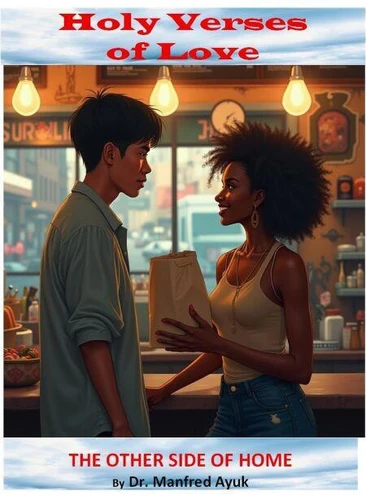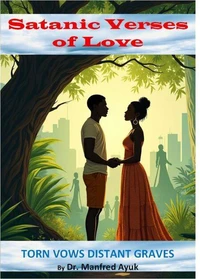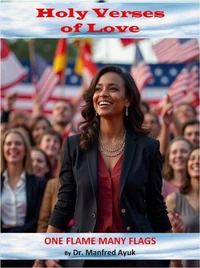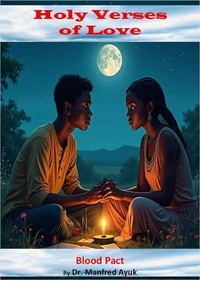The Other Side of Home. Holy Verses of Love, #11
Par : ,Formats :
Disponible dans votre compte client Decitre ou Furet du Nord dès validation de votre commande. Le format ePub est :
- Compatible avec une lecture sur My Vivlio (smartphone, tablette, ordinateur)
- Compatible avec une lecture sur liseuses Vivlio
- Pour les liseuses autres que Vivlio, vous devez utiliser le logiciel Adobe Digital Edition. Non compatible avec la lecture sur les liseuses Kindle, Remarkable et Sony
 , qui est-ce ?
, qui est-ce ?Notre partenaire de plateforme de lecture numérique où vous retrouverez l'ensemble de vos ebooks gratuitement
Pour en savoir plus sur nos ebooks, consultez notre aide en ligne ici
- FormatePub
- ISBN8231390502
- EAN9798231390502
- Date de parution14/07/2025
- Protection num.pas de protection
- Infos supplémentairesepub
- ÉditeurWalzone Press
Résumé
A form asks, "What race should we put here?"Thirteen-year-old Kai Lin hesitates. His silence echoes across two continents and two generations. The Other Side of Home is a multi-layered, cross-cultural novel that traces the story of a Chinese-American boy and a Black American girl who fall in love in a fractured corner of Washington, D. C.-and what happens when that love is asked to survive legacy, distance, betrayal, and the weight of two unforgiving cultures.
Zhihao Lin is the son of Chinese immigrants, raised behind the counter of his father's carryout in a predominantly Black neighborhood. Quiet, mathematically gifted, and emotionally reserved, Zhihao keeps his head down and follows his family's expectations-until he meets Aminah Johnson, a bold, brilliant science student with a voice that won't shrink. Their friendship begins when they're both ten. By high school, it deepens into love, kept secret from both families who are bound to disapprove.
As the two navigate adolescence, church hats and chopsticks, community suspicion and parental warnings, they fight for a relationship that no one wants to recognize. When their secret becomes public at graduation, both families erupt. Still, Zhihao and Aminah commit to one another-through college, engagement, and eventually marriage. They have two children, Kai and Zola, and for a while, they believe love is enough.
Then comes the offer: Zhihao's family opens a tech company in Hong Kong and urges him to take over. Against Aminah's hesitation, they move overseas. But China does not welcome her. Aminah faces constant racism, cultural isolation, and microaggressions too sharp to ignore. Their children are bullied. Zhihao, increasingly distant, immerses himself in work-and into the orbit of Mei Lin, a poised Chinese investor with personal ambitions and no patience for Aminah's presence.
When Aminah is framed for a drug crime by Mei and arrested in Hong Kong, Zhihao fails to protect her. She is deported. The children are taken back to the U. S. by Zhihao's parents. Alone, humiliated, and heartbroken, Aminah rebuilds her life in Washington, D. C.-this time not as someone's wife, but as an advocate, mother, and truth-teller. Her essays on race, womanhood, and diaspora go viral. Her strength is no longer private.
Meanwhile, Zhihao begins to unravel. He loses Mei, loses his company's standing, and realizes too late what his silence has cost. His first attempt to reconnect is met with cold distance from his children-especially from Kai, who says: "You let them hurt her."The novel's final act belongs to the children. Kai and Zola, biracial and bicultural, begin to shape their identities not by what they were given-but by what they refuse to lose.
Through their own struggles, public school forms, and family heritage projects, they come to understand that the question "What are you?" cannot be answered with a checkbox. Only with a choice. Told in lyrical prose and alternating perspectives-Aminah, Zhihao, Zola, Kai, and Aminah's mother-the novel spans more than a decade and two continents. It is structured in four acts with interludes and culminates in a scene where Kai and Zola circle both "Black" and "Asian" on their school form-and write in a third box: Human.
Zhihao Lin is the son of Chinese immigrants, raised behind the counter of his father's carryout in a predominantly Black neighborhood. Quiet, mathematically gifted, and emotionally reserved, Zhihao keeps his head down and follows his family's expectations-until he meets Aminah Johnson, a bold, brilliant science student with a voice that won't shrink. Their friendship begins when they're both ten. By high school, it deepens into love, kept secret from both families who are bound to disapprove.
As the two navigate adolescence, church hats and chopsticks, community suspicion and parental warnings, they fight for a relationship that no one wants to recognize. When their secret becomes public at graduation, both families erupt. Still, Zhihao and Aminah commit to one another-through college, engagement, and eventually marriage. They have two children, Kai and Zola, and for a while, they believe love is enough.
Then comes the offer: Zhihao's family opens a tech company in Hong Kong and urges him to take over. Against Aminah's hesitation, they move overseas. But China does not welcome her. Aminah faces constant racism, cultural isolation, and microaggressions too sharp to ignore. Their children are bullied. Zhihao, increasingly distant, immerses himself in work-and into the orbit of Mei Lin, a poised Chinese investor with personal ambitions and no patience for Aminah's presence.
When Aminah is framed for a drug crime by Mei and arrested in Hong Kong, Zhihao fails to protect her. She is deported. The children are taken back to the U. S. by Zhihao's parents. Alone, humiliated, and heartbroken, Aminah rebuilds her life in Washington, D. C.-this time not as someone's wife, but as an advocate, mother, and truth-teller. Her essays on race, womanhood, and diaspora go viral. Her strength is no longer private.
Meanwhile, Zhihao begins to unravel. He loses Mei, loses his company's standing, and realizes too late what his silence has cost. His first attempt to reconnect is met with cold distance from his children-especially from Kai, who says: "You let them hurt her."The novel's final act belongs to the children. Kai and Zola, biracial and bicultural, begin to shape their identities not by what they were given-but by what they refuse to lose.
Through their own struggles, public school forms, and family heritage projects, they come to understand that the question "What are you?" cannot be answered with a checkbox. Only with a choice. Told in lyrical prose and alternating perspectives-Aminah, Zhihao, Zola, Kai, and Aminah's mother-the novel spans more than a decade and two continents. It is structured in four acts with interludes and culminates in a scene where Kai and Zola circle both "Black" and "Asian" on their school form-and write in a third box: Human.
A form asks, "What race should we put here?"Thirteen-year-old Kai Lin hesitates. His silence echoes across two continents and two generations. The Other Side of Home is a multi-layered, cross-cultural novel that traces the story of a Chinese-American boy and a Black American girl who fall in love in a fractured corner of Washington, D. C.-and what happens when that love is asked to survive legacy, distance, betrayal, and the weight of two unforgiving cultures.
Zhihao Lin is the son of Chinese immigrants, raised behind the counter of his father's carryout in a predominantly Black neighborhood. Quiet, mathematically gifted, and emotionally reserved, Zhihao keeps his head down and follows his family's expectations-until he meets Aminah Johnson, a bold, brilliant science student with a voice that won't shrink. Their friendship begins when they're both ten. By high school, it deepens into love, kept secret from both families who are bound to disapprove.
As the two navigate adolescence, church hats and chopsticks, community suspicion and parental warnings, they fight for a relationship that no one wants to recognize. When their secret becomes public at graduation, both families erupt. Still, Zhihao and Aminah commit to one another-through college, engagement, and eventually marriage. They have two children, Kai and Zola, and for a while, they believe love is enough.
Then comes the offer: Zhihao's family opens a tech company in Hong Kong and urges him to take over. Against Aminah's hesitation, they move overseas. But China does not welcome her. Aminah faces constant racism, cultural isolation, and microaggressions too sharp to ignore. Their children are bullied. Zhihao, increasingly distant, immerses himself in work-and into the orbit of Mei Lin, a poised Chinese investor with personal ambitions and no patience for Aminah's presence.
When Aminah is framed for a drug crime by Mei and arrested in Hong Kong, Zhihao fails to protect her. She is deported. The children are taken back to the U. S. by Zhihao's parents. Alone, humiliated, and heartbroken, Aminah rebuilds her life in Washington, D. C.-this time not as someone's wife, but as an advocate, mother, and truth-teller. Her essays on race, womanhood, and diaspora go viral. Her strength is no longer private.
Meanwhile, Zhihao begins to unravel. He loses Mei, loses his company's standing, and realizes too late what his silence has cost. His first attempt to reconnect is met with cold distance from his children-especially from Kai, who says: "You let them hurt her."The novel's final act belongs to the children. Kai and Zola, biracial and bicultural, begin to shape their identities not by what they were given-but by what they refuse to lose.
Through their own struggles, public school forms, and family heritage projects, they come to understand that the question "What are you?" cannot be answered with a checkbox. Only with a choice. Told in lyrical prose and alternating perspectives-Aminah, Zhihao, Zola, Kai, and Aminah's mother-the novel spans more than a decade and two continents. It is structured in four acts with interludes and culminates in a scene where Kai and Zola circle both "Black" and "Asian" on their school form-and write in a third box: Human.
Zhihao Lin is the son of Chinese immigrants, raised behind the counter of his father's carryout in a predominantly Black neighborhood. Quiet, mathematically gifted, and emotionally reserved, Zhihao keeps his head down and follows his family's expectations-until he meets Aminah Johnson, a bold, brilliant science student with a voice that won't shrink. Their friendship begins when they're both ten. By high school, it deepens into love, kept secret from both families who are bound to disapprove.
As the two navigate adolescence, church hats and chopsticks, community suspicion and parental warnings, they fight for a relationship that no one wants to recognize. When their secret becomes public at graduation, both families erupt. Still, Zhihao and Aminah commit to one another-through college, engagement, and eventually marriage. They have two children, Kai and Zola, and for a while, they believe love is enough.
Then comes the offer: Zhihao's family opens a tech company in Hong Kong and urges him to take over. Against Aminah's hesitation, they move overseas. But China does not welcome her. Aminah faces constant racism, cultural isolation, and microaggressions too sharp to ignore. Their children are bullied. Zhihao, increasingly distant, immerses himself in work-and into the orbit of Mei Lin, a poised Chinese investor with personal ambitions and no patience for Aminah's presence.
When Aminah is framed for a drug crime by Mei and arrested in Hong Kong, Zhihao fails to protect her. She is deported. The children are taken back to the U. S. by Zhihao's parents. Alone, humiliated, and heartbroken, Aminah rebuilds her life in Washington, D. C.-this time not as someone's wife, but as an advocate, mother, and truth-teller. Her essays on race, womanhood, and diaspora go viral. Her strength is no longer private.
Meanwhile, Zhihao begins to unravel. He loses Mei, loses his company's standing, and realizes too late what his silence has cost. His first attempt to reconnect is met with cold distance from his children-especially from Kai, who says: "You let them hurt her."The novel's final act belongs to the children. Kai and Zola, biracial and bicultural, begin to shape their identities not by what they were given-but by what they refuse to lose.
Through their own struggles, public school forms, and family heritage projects, they come to understand that the question "What are you?" cannot be answered with a checkbox. Only with a choice. Told in lyrical prose and alternating perspectives-Aminah, Zhihao, Zola, Kai, and Aminah's mother-the novel spans more than a decade and two continents. It is structured in four acts with interludes and culminates in a scene where Kai and Zola circle both "Black" and "Asian" on their school form-and write in a third box: Human.









